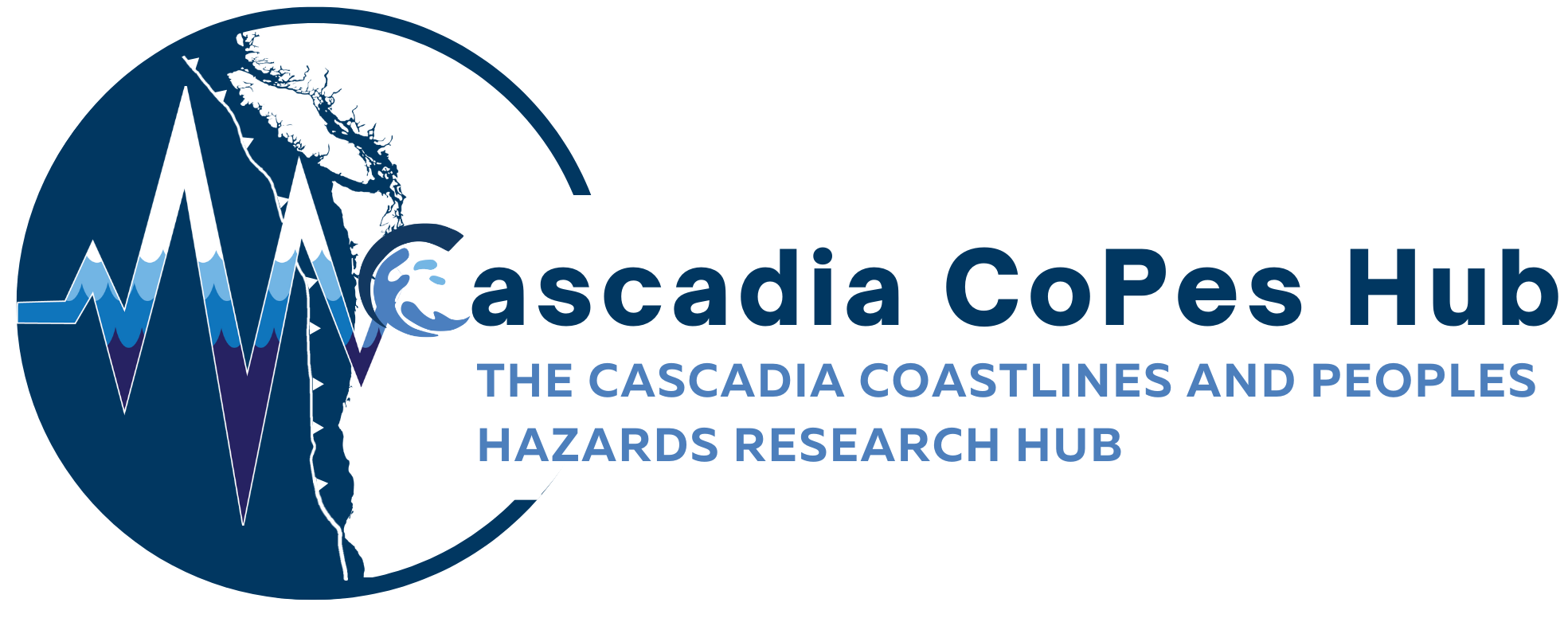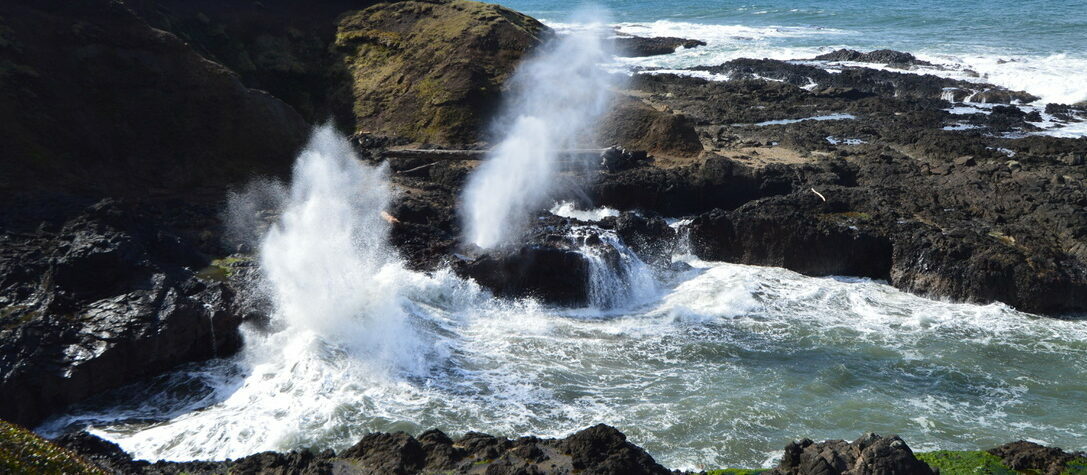2022-2023 Pilot Project Grant Awards
The Cascadia CoPes Hub has recently awarded 5, one-year pilot research projects. These pilot projects are engaging communities and supporting emergent research activities to support information needs identified by tribes and other coastal communities. Each project has been funded for 1 year.
The Hub has also awarded 1 rapid-response project. Rapid response projects are aligned with the Hub’s science goals and community partner interests but may be out of phase with the annual pilot project proposal process due to the collection of perishable hazard and disaster data.
Pilot Project Awards:
Collecting Critical Infrastructure Inventories in the Tokeland to Taholah Collaboratory.
Led by Hub member Dr. Jeffrey Berman, a team will be developing an infrastructure inventory in the Washington Tokeland to Taholah collaboratory. This inventory is necessary to estimate the impacts of hazards (earthquakes, tsunamis, and landslides) on critical infrastructure. Community partners include the Westport Public Works Department and the Washington State Emergency Management Division.
Inclusive Community-based STEAM Identity-building in Coastal Hazards Research: Pilot Activities for Cascadia TEACH with the Ocosta School District, WA
Led by Hub member Dr. Daniel Abramson, this project will pilot a novel K-12 STEAM (science, technology, engineering, arts, mathematics) engagement project. 4 different activities will be integrated into an afterschool program at Ocosta Junior and Senior High School to 1) create a ‘tsunami-eye’ view of pedestrian evacuation simulation to inform community drills; 2) develop virtual reality visuals of future flooding from tsunamis, and sea level rise; 3) envisioning positive action through art, creative writing, and Minecraft and other game-worlds; and 4) building geonarratives with participatory community asset mapping.
Enhance Community Disaster Preparedness and Resiliency through Physical and Virtual Drills
Led by Hub member Dr. Haizhong Wang, this project will promote evacuation preparedness through physical reality and virtual reality drills along the Oregon coast. The team will work with coastal households to test the effectiveness of emergency evacuation plans to help refine household and community evacuation plans. Community partners include the Emergency Volunteer Corps of Nehalem Bay.
Evaluating the Role of Short- and Long-term Channel Change on Nooksack River Flooding.
The Nooksack watershed transports the most sediment among all Salish Sea watersheds. Led by Hub member Dr. Alex Horner-Devine, the team will investigate the role of changing morphology and sediment management in modeluating flood risk in the lower Nooksack basin, within the northernmost Cascadia CoPes Hub collaboratory. Community partners include Whatcom County Public Works Department along with the Nooksack FLIP (Floodplain Integrated Planning) board made of local government, state, and federal agencies, Tribes, and agricultural representatives.
Rapid Response Award:
Rapid Response to a Large Scale Tsunami Advisory: Understanding if, how, and why Cascadia Coastal Communities Receive Warnings and Change Behaviors
On January 15, 2022, a volcanic eruption off the coast of Tonga resulted in the issuance of a tsunami advisory for the entire eastern Pacific coast of North America. Led by Hub member Dr. Nicole Errett, the project aims to understand if, how, and why emergency management officials responded to the alert, including engaging in additional community-specific risk communications or activating emergency support functions, as well as their perceptions of their community’s consideration of risk in response to the warning. This research will advance our understanding of how communities receive and interpret tsunami warnings, and how future warnings and in-development alert systems and messages can be tailored to meet the unique needs of Cascadia Coastal communities.
Updated August 29, 2022


Comments are closed